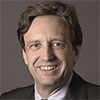Reexamining the Country's Founding Principles
My book’s observations about the world’s financial meltdown that began in 2008 is an adventure into the past, into our American culture, and a reexamination of the very principles of this country’s founding, including foregone conclusions about the viability of democracy. We have forgotten our forefather’s debates about central banking, hard currency, and taxation.
So too have we adopted a very different understanding of morals that guide us and our decisions. Theirs was a world of uncertainty, of setting a course that might produce a result greater than the world has seen since the Roman Republic, an epoch when global commerce and monetary exchange spontaneously erupted on the scene and brought forth a middle class with more than a subsistence livelihood.
In vivid contrast, the leaders of the present world are so certain that their solutions will provide for us that there is no substantive debate. Yes, there is acrimony between Democrats and Republicans. But nearly every program that might strengthen our nation is off limits, the well poisoned by political correctness.
A bipartisan solution to the crisis of cancerous growth in both private and public credit is to tweak entitlement benefits and raise taxes.
To suggest that government is the problem, not the solution, is pure heresy. To suggest restoring the safekeeping role of the financial system to banks would bring the zombies that hold the nation’s deposits back to life is so unthinkable that no one in the private or public sector would seriously broach the thought. To suggest the removal of rules, not more rule-making for financial institutions, would never be considered by the commissioners of the SEC. A bill demanding the downsizing of any regulatory agency would never be entertained by a Congressional committee.
Tax reform does get discussed occasionally, but gets about as much serious consideration as the purchase of a Mercedes Benz by a poverty stricken family. It is the domain of kook candidates such as Ron Paul or Mike Huckabee. Introducing some aspect of hardness to management of the money supply—even if it does not involve backing with gold — is academically dismissed as barbaric and earns its advocates the label of “crackpot.”
To question the spread of immoral behavior, be it in whole neighborhoods that are rife with crime or on the public airwaves, earns one the label of being uncaring. To return the public schools to the people, even with the subsidy of vouchers, is uncaring as well. Worst of all, to acknowledge that our democracy has given way to a new form of government — socialism — is unspeakable and will be denied out of hand.
Only through the fresh breeze of history can we see how our course has veered in a direction that might irretrievably weaken us, unless we lose our hubris and our certainty that central control is the better way. We must rebuild our character, person by person.
Regards,
Bill Baker,
for The Daily Reckoning
[Editor’s note: This passage is reprinted from William W. Baker’s book, Endless Money: The Moral Hazards of Socialism, with the permission of John Wiley & Sons, Inc (©2010). You can get your own copy here.]


Comments: